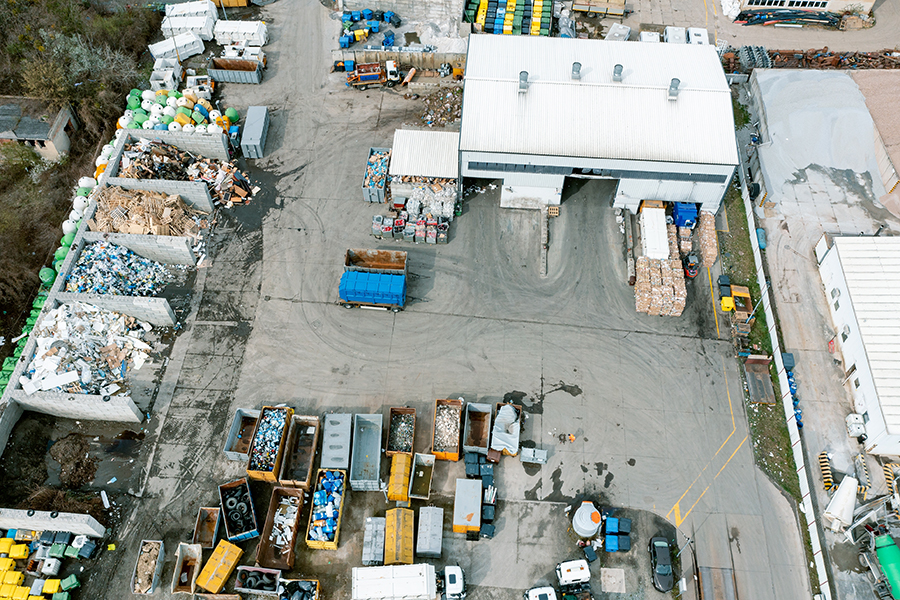As the world grapples with the dual challenges of food security and environmental sustainability, innovative solutions are emerging at the intersection of agriculture and waste management. One such promising solution is insect farming.
Insect farming’s circular approach tackles the pressing issue of food waste while providing a renewable source of protein, contributing to a more resilient and environmentally friendly feed system.
For waste management companies, venturing into insect farming not only represents a lucrative business opportunity but also a sustainable approach to waste utilization and food production. Several waste management companies are already at the forefront of the industry, utilizing black soldier fly (BSF) technology to address food waste sustainably.
Veolia, for example, is a global industry leader harnessing the power of BSF larvae to transform organic waste from agricultural and agri-food sectors into high-protein animal feed. Their initiatives in Malaysia and France not only help manage waste but also contribute to sustainable food production by providing an alternative protein source while reducing the environmental footprint of traditional livestock farming.
Similarly, GoTerra, in Australia, has introduced modular waste management units, known as Modular Infrastructure for Biological Services (MIBs), that utilize BSF larvae to process food waste onsite. Their project at the Barangaroo Towers in Sydney demonstrates the efficacy of this approach in converting high-volume food waste into insect protein and soil enhancers, significantly reducing emissions and supporting the circular economy.
Transforming Waste into Value
Waste management companies deal with vast amounts of organic waste, which often ends up burned or in landfills, contributing to greenhouse gas emissions and environmental degradation. Insect farming, particularly the cultivation of Black Soldier Flies (BSF), offers a compelling alternative. BSF larvae can consume a wide variety of organic waste, transforming it into high-value protein and oil. This process not only reduces the volume of waste but also creates new revenue streams.
Key Benefits:
– Waste Reduction: BSF larvae can process twice their body weight in organic waste daily, significantly reducing the volume of waste.
– High-Value Products: The larvae are rich in protein (up to 45%) and fat (up to 35%), making them an excellent ingredient for animal feed, including aquaculture, poultry, and pet food.
Economic Viability
According to Rabobank, the global market for insect protein will reach $9.46 billion by 2030, driven by increasing demand for sustainable animal feed. Waste management companies are uniquely positioned to capitalize on this growing market. By integrating insect farming into their operations, they can diversify their revenue streams and enhance their profitability.
Economic Drivers:
– Growing Demand: The aquaculture and pet food industries are actively seeking sustainable protein alternatives to fishmeal and soybean meal, both of which have significant environmental impacts.
– Cost Efficiency: Utilizing organic waste as feed for insects reduces raw material costs, improving the economic viability of insect farming.
Environmental Sustainability
Insect farming is a highly sustainable practice with a minimal environmental footprint. It addresses several critical environmental issues, including waste management, greenhouse gas emissions, and land use.
Environmental Impact:
-Efficient Resource Use: Insects require less land and water than conventional livestock or vegetal protein, making them a sustainable protein source.
– Circular Economy: By converting waste into valuable organic products, insect farming supports the principles of a circular economy, reducing reliance on finite resources.
Addressing Specific Challenges with Wet Organic Waste
Wet organic waste poses significant challenges for traditional waste management processes. It has a shorter shelf life and higher water content, making transportation and handling less economically efficient.
These waste streams are often directed to biogas production, which, while offering renewable energy benefits, misses the potential for higher-value upcycling.
Biogas also comes with significant challenges. The high initial costs for setting up biogas plants can be prohibitive, especially for small-scale operations. Maintaining the optimal conditions for anaerobic digestion, such as temperature and pH, is challenging and can affect efficiency. Moreover, if not managed properly, biogas production can cause environmental pollution from effluents and even methane leakage.
BSF Farming as a Solution:
BSF larvae thrive on wet organic waste, which typically comprises 60-70% moisture. This makes BSF farming an ideal solution for managing wet waste streams effectively. The collaboration between FreezeM and Shachar Group demonstrates how this model can be successfully implemented. FreezeM’s decoupled model, which supplies ready-to-use BSF neonates, allows waste management companies to convert wet waste into valuable insect protein without the need for on-site breeding facilities.
Strategic Synergies and Case Study Insights
The collaboration between FreezeM and Shachar Group exemplifies the benefits of integrating insect farming into waste management operations. Shachar, specializing in upcycling food waste, faced challenges with wet waste streams. By leveraging FreezeM’s BSF technology, they transformed wet waste into valuable resources.
Case Study Highlights:
– Scalability and Efficiency: FreezeM’s PauseM® BSF neonates enable scalable and efficient insect farming operations by outsourcing the breeding process and focusing on their production capabilities.
– Innovative Solutions: Shachar’s pilot rearing facility explores various waste streams, optimizing BSF feed recipes and achieving superior feed conversion rates.
– Environmental and Economic Impact: This collaboration not only reduces waste but also generates new revenue streams through the production of high-value protein and organic fertilizer.
Conclusion
Insect farming represents a transformative opportunity for waste management companies. By turning organic waste into high-value protein and oil, companies can enhance their profitability, contribute to environmental sustainability, and support the growing demand for sustainable animal feed. With regulatory support, technological advancements, and strategic synergies, waste management companies are well-positioned to lead the way in this innovative and sustainable industry.
As the world seeks sustainable solutions to pressing environmental and food security challenges, insect farming offers a promising path forward. Waste management companies that embrace this opportunity can play a crucial role in shaping a more sustainable and resilient future.

